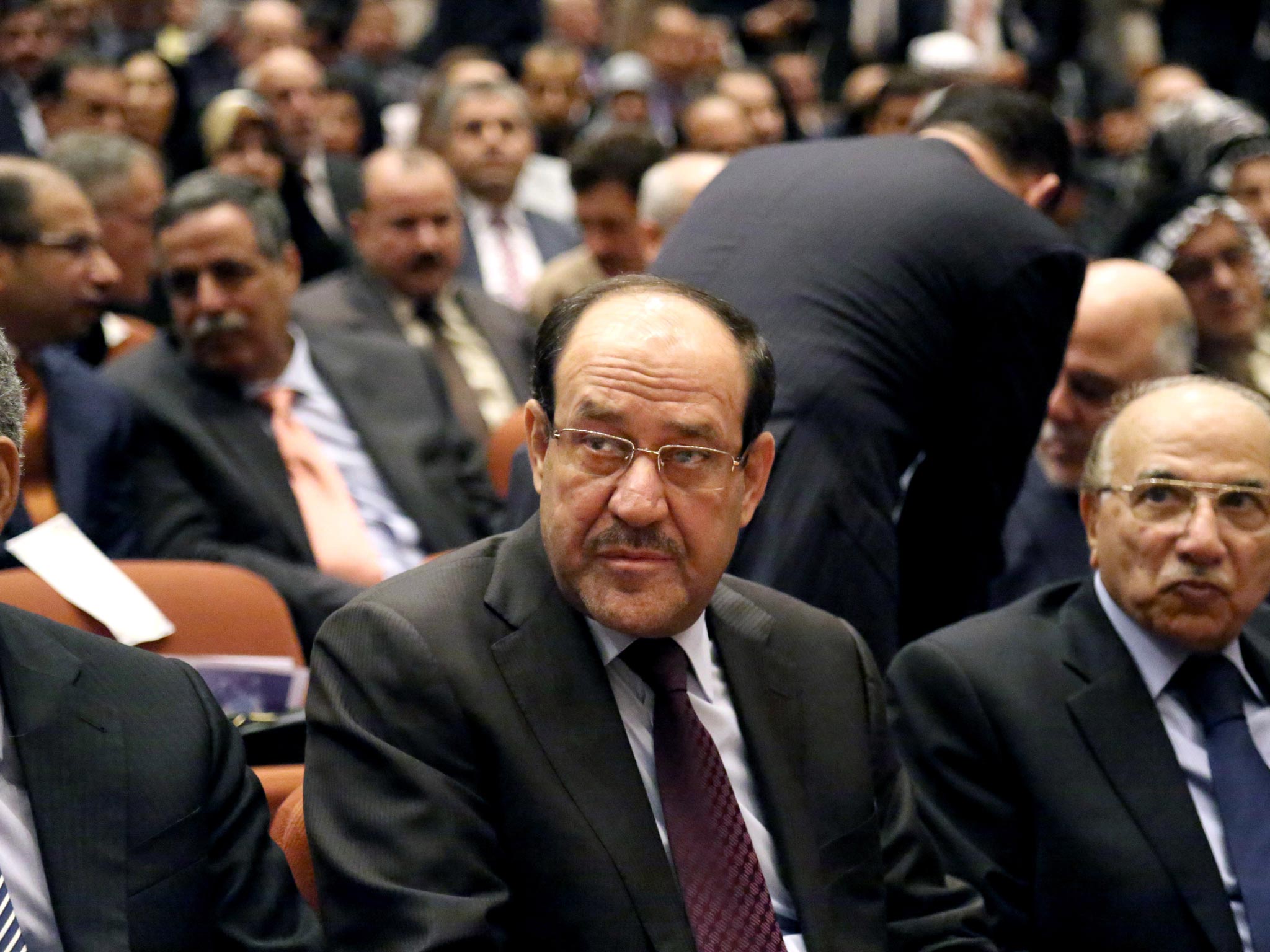Iraq crisis: Accusations fly between Kurdish leaders and Baghdad hampering co-ordinated action against militants
‘Poisonous’ relations block military efforts between Iraqi capital and regional government despite threat to both by Isis

Your support helps us to tell the story
From reproductive rights to climate change to Big Tech, The Independent is on the ground when the story is developing. Whether it's investigating the financials of Elon Musk's pro-Trump PAC or producing our latest documentary, 'The A Word', which shines a light on the American women fighting for reproductive rights, we know how important it is to parse out the facts from the messaging.
At such a critical moment in US history, we need reporters on the ground. Your donation allows us to keep sending journalists to speak to both sides of the story.
The Independent is trusted by Americans across the entire political spectrum. And unlike many other quality news outlets, we choose not to lock Americans out of our reporting and analysis with paywalls. We believe quality journalism should be available to everyone, paid for by those who can afford it.
Your support makes all the difference.Kurdish leaders accuse the Iraqi Prime Minister, Nouri al-Maliki, of being hysterical and unbalanced, while he says the Kurdish capital, Erbil, is a centre for the Islamic State of Iraq and the Levant (Isis) and adherents of Saddam Hussein.
Kurdish ministers are boycotting cabinet meetings in Baghdad while cargo flights from Baghdad to Erbil and Sulaimaniyah, also in Kurdistan, have been suspended. Road links have already been cut by insurgents. “Relations between Erbil and Baghdad are more poisonous than they have ever been,” said a senior politician in the Iraqi capital.
The development means the Shia-dominated Baghdad government and the Kurds cannot co-ordinate action against Isis, though it threatens both. The angry exchange started on Wednesday, when Mr Maliki caused surprise by accusing the quasi-independent Kurdistan Regional Government (KRG) of collaborating with Isis and other groups that drove the Iraqi army out of much of northern and western Iraq in June.
In his weekly television address, he said: “We will never be silent about Erbil becoming a base for the operations of the Islamic State and Baathists and al-Qaida and the terrorists.”
Mr Maliki was voicing a suspicion held by many Shia in Baghdad that, because the KRG benefited from the Isis offensive by taking over Kirkuk and other disputed territories, it was complicit in the Sunni Arab revolt. The Kurds insist they only took advantage of the disintegration of the Iraqi army to occupy areas that were theirs by historic right.
The office of the KRG President, Masoud Barzani, says Mr Maliki “has become hysterical and has lost his balance”. It demands that he step down as prime minister and accuses him of destroying the country.
Mr Maliki’s political strategy may be to develop a stab-in-the-back explanation for his defeats that will convince the Shia community he is not responsible for their loss of power. He has attributed the fall of Mosul on 10 June to “conspirators”, but has not named them.
Sunni tribal leaders who have sided with Isis are living in Erbil, but they have nowhere else to go and that does not necessarily mean there is a Sunni-Kurd conspiracy against Baghdad. “The Shia as a whole are very frightened now,” said one Iraqi observer. “You can tell it in their voices.”
In the course of a month, they have seen a 350,000-strong Shia-led army dissolve under attack from a smaller force. Only a small government force is still holding out at Baiji refinery, according to reports from the area, and an army attack into Tikrit on 1 July was repulsed.
Iraq is desperately trying to rally international support, but the US and Iran are wary of becoming over-involved in a sectarian war. In a letter to the UN, Iraq said Isis had gained control of nuclear materials at Mosul University that might be used by terrorists.
But the International Atomic Energy Agency (IAEA) in Vienna said that the materials did not pose a security risk. “On the basis of the initial information we believe the material involved is low grade and would not present a significant safety, security or nuclear proliferation risk,” said the IAEA’s spokeswoman, Gill Tudor.
Join our commenting forum
Join thought-provoking conversations, follow other Independent readers and see their replies
Comments